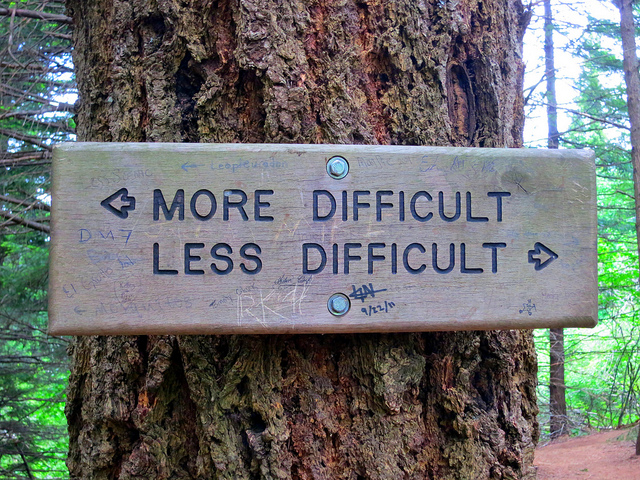Decisions are what government executives, elected officials and civic leaders do. They may make them in groups or alone, in public or private, but they spend a great deal of time preparing for, making, and carrying out decisions. Which begs the question: How do we know if we’re making good decisions?
We certainly know what good decisions are supposed to do: Solve problems or fulfill opportunities without creating equal or greater problems. These unintended consequences often take time to develop, so it’s hard to judge decisions right away. As time passes, though, we can usually see the good and the bad more clearly. That’s why support for past decisions either grows or melts away.
This is good news for historians, but not so good for decision makers, who need something quicker: a real-time test they can apply hours before making a decision, something that tells them if they’re on firm ground or about to step into quicksand. Is there such a test?
I’ve searched for one for years by wading through books on decision making and asking people who make decisions. And I’ve found it: a checklist you can use to steer clear of most bad decisions and have confidence in good ones. Most impressively, it came not from a book . . . but from a mayor.
Before I share it with you, let me tell you what I’ve learned from the books. First, we are filled with hidden biases, and if you know the most common ones (“confirmation bias,” “sunk-cost fallacy,” “anchoring,” and so on), you’ll avoid traps and, in general, make better decisions. Any book by Dan Arierly will tell you about your biases. Second, there are disciplined ways of thinking that will lead to better decisions. You’ve almost certainly used some of them, such as SWOT analysis. Some you probably haven’t, like PEST analysis (Google it) and Peter Drucker’s Five Questions (Google it, too). Read up on these and other strategic planning techniques; they’ll help.
Still, this wasn’t what I was looking for. I wanted a test you could apply the day before a big decision and sleep better that night. That’s why I sat up when a mayor offered hers.
The mayor was Teresa Tomlinson of Columbus, Georgia, and she described her test while I was interviewing her for a podcast about why she ran for office and what she had learned along the way. The test—she called it a “pep talk—was a checklist she had developed as a young lawyer before going to trial. (Click the media player at the top of this post to hear Mayor Tomlinson describe it in her own words.)
The mayor’s test is simple but demanding. It asks four questions:
- Am I doing this for the right reasons so my motives are pure?
- Have I done my homework so I know what I’m talking about?
- Have I sought out, listened to, and respected others in coming to this decision?
- Have I been reasonable in my approach?
If you have done these four things, as Mayor Tomlinson says, “then you are OK and you need to stay the course just as hard as you can.”
What Tomlinson’s test won’t tell you, of course, is how history will judge your decision. Nor will it tell you what might happen in the future—whether circumstances could change in a week’s time causing you to rethink things. But most decision makers understand that. What they need is a way of telling if, knowing what’s known at this time, this is the right decision to make. The mayor’s test, answered honestly, will do that.
A version of this posting appeared on the Governing website.
Photo by Sasquatch 1 licensed under Creative Commons.

